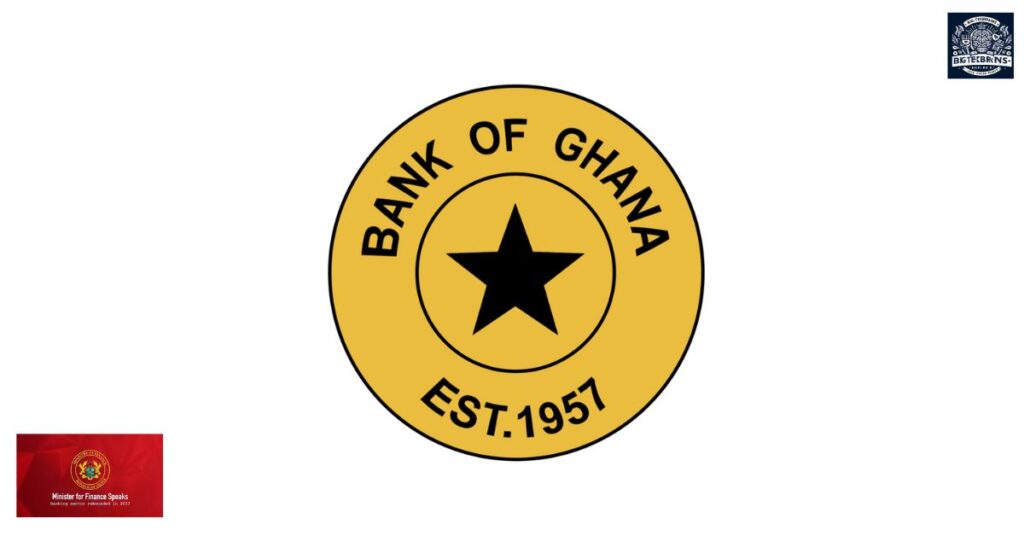Historical Overview
The Bank of Ghana (BoG) was established on 4th March 1957, two days before Ghana attained independence, making it one of the first central banks in sub-Saharan Africa. It was created to replace the West African Currency Board (WACB), which previously managed monetary functions in British West Africa. Dr. Kwame Nkrumah, Ghana’s first President, championed its establishment to ensure economic sovereignty and control over the country’s monetary policy.
Key Milestones:
- 1957: Bank of Ghana Act, 1957 (Act 34), was passed to establish the BoG formally.
- 2002: Bank of Ghana Act, 2002 (Act 612), introduced reforms to enhance its independence and regulatory powers.
- 2007: Ghana transitioned to the Ghana Cedi (GHS), redenominating the currency to address inflation.
Operations
The Bank of Ghana operates as the central bank, with primary responsibilities including:
Monetary Policy Implementation:
- Formulating policies to stabilize prices and manage inflation.
Currency Issuance:
- Printing and circulating the Ghanaian Cedi as legal tender.
Regulation of Banks:
- Supervising and regulating financial institutions to maintain stability in the banking sector.
Foreign Exchange Management:
- Overseeing Ghana’s foreign exchange reserves and exchange rates.
Government Banking Services:
- Acting as a banker and financial advisor to the government.
Financial Inclusion Initiatives:
- Promoting digital payments, mobile banking, and financial literacy.
Constitutional Backing
The Bank of Ghana derives its constitutional authority from Article 183 of the 1992 Constitution of Ghana, which outlines its mandate as the central monetary authority. The article provides the legal framework for its autonomy and responsibilities.
Key Supporting Legislation:
Bank of Ghana Act, 2002 (Act 612):
- Enhances the bank’s operational independence.
Banks and Specialized Deposit-Taking Institutions Act, 2016 (Act 930):
- Strengthens regulatory oversight.
Offices
The Bank of Ghana has its headquarters in Accra, with several regional offices nationwide. Key departments and offices include:
Monetary Policy Committee (MPC):
- Responsible for setting interest rates and ensuring price stability.
Research and Statistics Department:
- Provides data and analysis to support decision-making.
Banking Supervision Department:
- Oversees the licensing, regulation, and inspection of financial institutions.
Currency Department:
- Manages the design, printing, and distribution of currency.
Foreign Operations Department:
- Handles foreign exchange reserves and international financial transactions.
Leadership
The leadership of the Bank of Ghana is vested in the Governor and Deputy Governors, supported by a board of directors.
How They Function:
Governor:
- The Governor is the chief executive officer, responsible for implementing policies and ensuring the bank’s efficient operation.
Deputy Governors:
- The Deputy Governors assist the Governor, overseeing specific departments.
Board of Directors:
- The Board of Directors provides strategic oversight and ensures adherence to the bank’s mandate.
Key Current Leaders (as of 2025):
- Governor: Dr. Ernest Addison (since 2017)
- Deputy Governors: Dr. Maxwell Opoku-Afari and Elsie Addo Awadzi
Overseers and Method of Appointment
- President of Ghana in consultation with the Council of State, appoints the Governor and Deputy Governors.
- The President appoints board members but must meet specific professional and ethical standards.
- The Bank of Ghana is overseen by Parliament to ensure accountability and adherence to its mandate.
Recent initiatives include:
- Encouraging financial inclusion through digital payment systems like GhanaPay.
- Stabilizing the exchange rate by managing forex reserves.
- Supporting banking sector reforms to strengthen financial institutions.
References:
- 1992 Constitution of Ghana – Article 183: Central bank authority
- Bank of Ghana Act, 2002 (Act 612) – Legal framework for BoG operations.
- Official Website of the Bank of Ghana: www.bog.gov.gh
- Ayee, Joseph R. A. (2001). Governance in Ghana: Challenges and Prospects.
- Publications and monetary policy reports by the Bank of Ghana.
